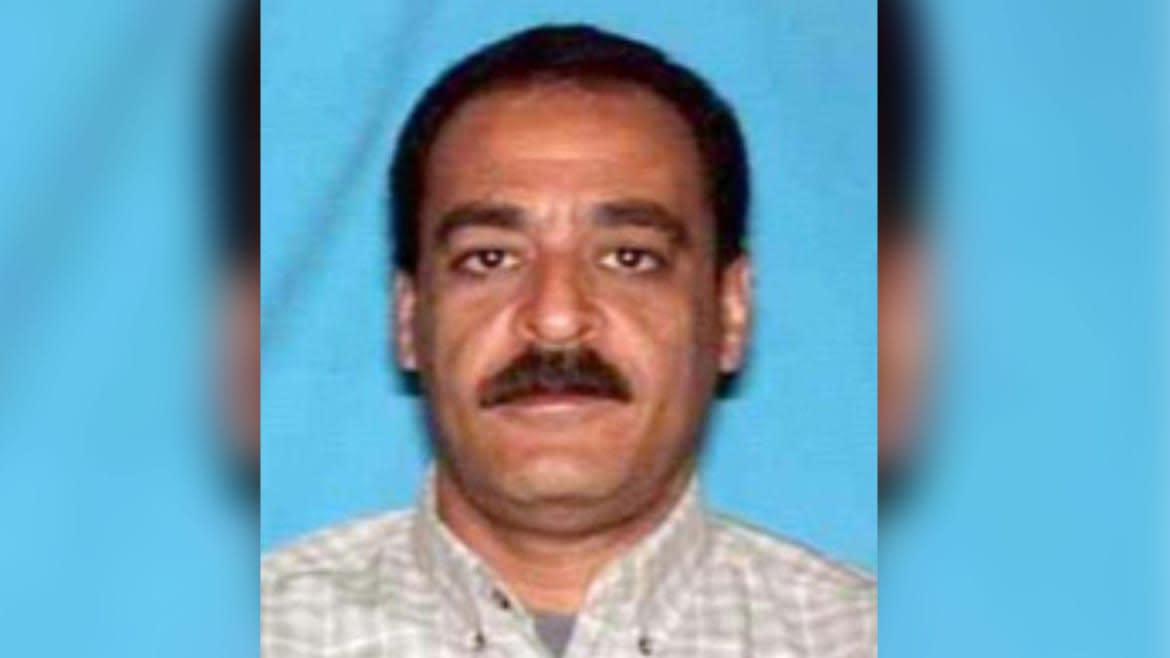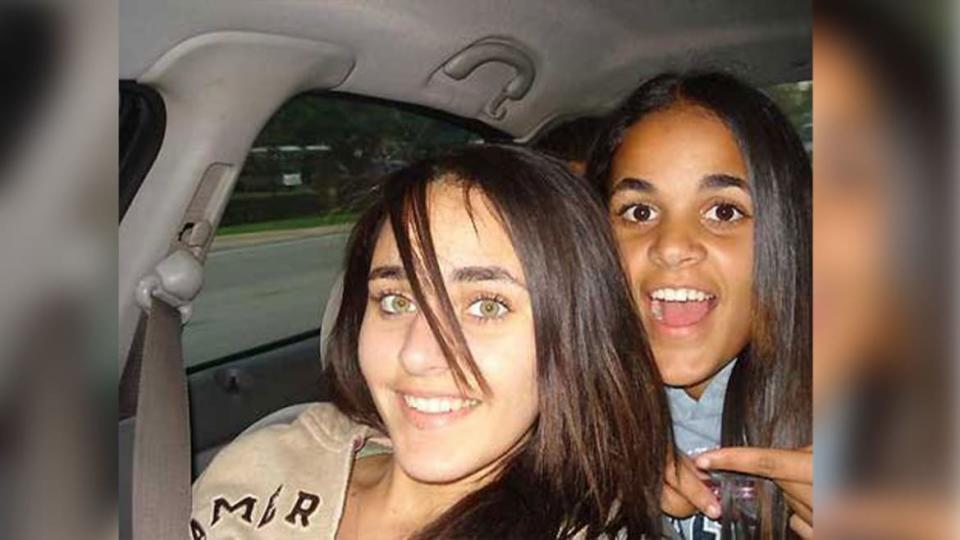Chilling 911 Call Fingers Dad in Horrific Texas ‘Honor Killing’ Trial

“Help! My dad shot me.”
Desperate pleas were some of the last words 17-year-old Sarah Said uttered in a New Year’s Day 911 call from the back of her father’s taxi outside Dallas, Texas.
The audio dates from 2008, just moments after prosecutors say Yaser Said shot his daughter and her sister, 18-year-old Amina, in an “honor killing,” having learned they had begun dating and that he could no longer “control them.” It also came after the daughters hatched a plan to escape their father two weeks prior, even successfully relocating before being persuaded to go back to Texas after being reported missing.
“I’m dying, I’m dying,” the teenager can be heard crying in the Jan. 1, 2008, call at around 7:30 p.m. that was played to jurors in a Dallas County courtroom on Wednesday.
Minutes later, a passerby discovered Sarah and Amina’s bullet-riddled bodies outside a Dallas-area hotel and also called authorities for help. But Said was nowhere to be found. It would take authorities over a decade to find a man who landed on the FBI’s Most Wanted List and was hiding about 40 minutes away from the crime scene in Justin, Texas.
Now, more than 14 years after prosecutors say Said lured his family back to town after their escape and fatally shot his daughters, the 65-year-old is on trial for capital murder in Dallas County Court. If convicted, he faces life in prison. Attorneys for Said say the former taxi driver only became a suspect because he is Muslim and that the investigation into the murders was botched. He has pleaded not guilty.
Prosecutors teased a robust case on Tuesday, citing 50 witnesses, including Said’s former wife and his daughter’s then-boyfriends, claiming evidence proves that the teenagers were “very scared for their lives” and had fled about a week prior for their safety.
Dallas Cowboys Cornerback Was in Car During Murder—but Didn’t Shoot, Lawyer Says
“This is a case about a man obsessed with possession and control,” prosecutor Lauren Black said during opening statements on Tuesday. “He controlled what they did, who they talked to, who they could be friends with, if they—and who they—could date. And he controlled everything in his household.”
Black told jurors that Said had grown “angrier” in the weeks leading to the murders after feeling he had lost control of his wife and daughters, who had been dating non-Muslim men. It wasn’t until December 2007, when prosecutors allege Said put a gun to Amina’s head and threatened to kill her, that the teenagers and their mother begin to hatch their plan to escape shortly before Christmas.
“You’ll hear in this case that leading up to the murders of Amina Said and Sarah Said, the defendant’s behavior got extremely dangerous,” Black said.
Two weeks before lamming it, the Said daughters and their boyfriends—Edgar Ruiz and Erik Panameno—began to organize the escape plan.

Ruiz told jurors on Tuesday that Amina had originally planned to flee alone, but that he suggested to his girlfriend that she should take Sarah and her mother, Patricia Owens, to protect one another. Panameno said on the witness stand Tuesday that he knew about the plan and that he had to keep his relationship with Sarah a secret because “something bad [would] happen to me or something bad would happen to her” if Said found out.
Lewisville High School history teacher Renee Hopkins told jurors that on Dec. 21, 2007, she received an email from Amina informing her of her plans to leave and begging for her secrecy. Asking Hopkins not to tell the police, Amina said that her father had begun arranging a marriage for the teenager and that she was supposed “to get married this year.”
“He will, without any drama or doubt, kill us,” Amina wrote in the email read in court Tuesday. "He has simply made our lives a nightmare. He’s one man, not God.”
Prosecutors said that on Christmas Day, the group went to Oklahoma, where Owens had family. The next day, Said reported them missing to the Lewisville Police Department—forcing the mother to call an officer to insist she was “alive and well” but was fearful of her husband.
Amina and Sarah would eventually return to the Dallas area on New Year’s Eve, after their mother went back first and convinced them to join her, with the father claiming he had changed, prosecutors said.
Amina’s aunt Connie Moggio told jurors on Tuesday that she spoke to the teen just hours before she was murdered. After Amina told her Owens had gone back to Said, Moggio testified that she told Amina to go to the police and file a restraining order against her father.
“She said her mom was wanting her to go home and she didn’t want to. She said she would rather be dead than go back there,” Moggio said.
Ruiz offered a similar account, telling jurors that the last words Amina told her were that he would never see her again.
“She knew she was going to die,” he added.
Prosecutors allege that Said eventually lured his daughters into his taxi, where Amina was sitting on the front passenger seat and Sarah was in the back—and that Owens was told “to stay home” as he drove them around. Authorities believe that the daughters were shot before 7:30 p.m. near the Omni Hotel.
“She’s asking for help and she names her killer, her father, Yaser Said,” Black said.
On Wednesday, jurors also heard a 911 call from Nathan Watson, a hotel manager on duty the night of the slaying. In the call, Watson said that the two teenagers were “hurt really bad” and that when he knocked on the window of the taxi, he could see one of the women’s eyes “fixed open.”
“Stuff was coming out of her nose,” Watson added in the call. “They don’t look alive.”
Joel Patton, the defense attorney for Said, said during opening arguments that his client was targeted because of his faith—and that the calls to police only indicate that Sarah was in an extreme moment of trauma. What the lawyer did not explain to jurors was how and why Said fled the scene and became a fugitive for 12 years. Said’s son and brother have since been sentenced for helping him evade police.
“It is wrong for the government to generalize an entire culture, criminalize an entire culture, to fit their narrative, and to fit their objective,” Patton said on Tuesday. “The state wants to convict Yaser for being Muslim in 2008.”
Get the Daily Beast's biggest scoops and scandals delivered right to your inbox. Sign up now.
Stay informed and gain unlimited access to the Daily Beast's unmatched reporting. Subscribe now.

 Yahoo News
Yahoo News 
